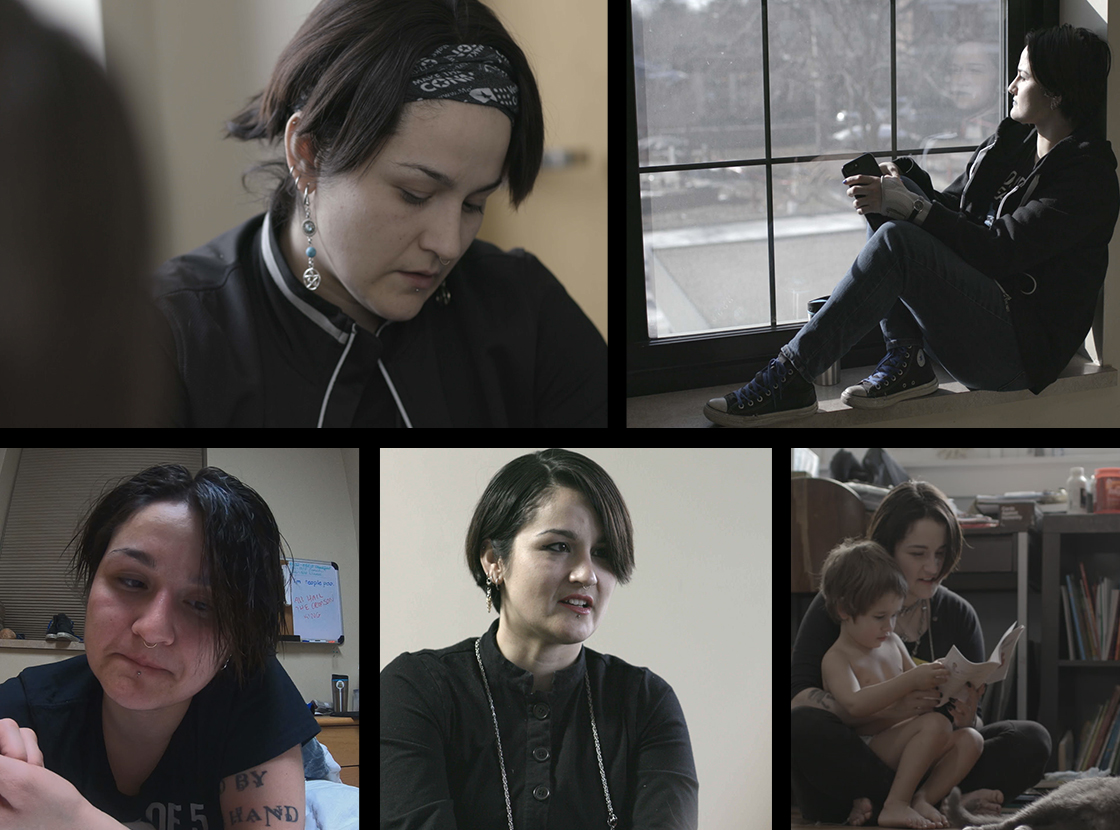Jason
Motivated by the events of September 11, 2001, Jason enlisted in the Army National Guard. In 2006, he deployed to Afghanistan, serving as a military intelligence officer investigating those suspected of corruption, espionage, drug trafficking, and facilitating Al Qaeda and the Taliban. Alone and outside the wire, he would go to meetings never knowing who might show up and if he would come out alive. When he returned home, Jason became a rising figure in the national political scene — serving in the Missouri House of Representatives from 2009-2013 before becoming the first millennial to hold a state-wide office in the country as Missouri’s 39th Secretary of State. In 2016, he lost the election for a Missouri Senate seat by a slim margin before deciding to campaign for mayor of Kansas City in 2018 as a potential stepping stone for a presidential run. His outward success covered up a deep internal turmoil. For years, he suffered from terrible nightmares: the Taliban would kidnap him, or an intruder would come into his home, and he would be powerless to stop them. He tried to control everything and was frequently angry. His heightened sense of alertness began to impact his wife, who would have panic attacks and sleep with a weapon by her side when Jason was traveling. On October 2, 2018 — 12 years after stepping foot in Afghanistan — Jason decided to walk away from politics and the public life he had known, announcing to his thousands of social media followers that he would go seek help at the Kansas City VA.

Jason
Motivated by the events of September 11, 2001, Jason enlisted in the Army National Guard. In 2006, he deployed to Afghanistan, serving as a military intelligence officer investigating those suspected of corruption, espionage, drug trafficking, and facilitating Al Qaeda and the Taliban. Alone and outside the wire, he would go to meetings never knowing who might show up and if he would come out alive. When he returned home, Jason became a rising figure in the national political scene — serving in the Missouri House of Representatives from 2009-2013 before becoming the first millennial to hold a state-wide office in the country as Missouri’s 39th Secretary of State. In 2016, he lost the election for a Missouri Senate seat by a slim margin before deciding to campaign for mayor of Kansas City in 2018 as a potential stepping stone for a presidential run. His outward success covered up a deep internal turmoil. For years, he suffered from terrible nightmares: the Taliban would kidnap him, or an intruder would come into his home, and he would be powerless to stop them. He tried to control everything and was frequently angry. His heightened sense of alertness began to impact his wife, who would have panic attacks and sleep with a weapon by her side when Jason was traveling. On October 2, 2018 — 12 years after stepping foot in Afghanistan — Jason decided to walk away from politics and the public life he had known, announcing to his thousands of social media followers that he would go seek help at the Kansas City VA.
Teresa
Teresa served in Iraq in 2005 and 2006 as a heavy equipment operator along with Tommy, her future husband, whom she met during her service. Together, they drove in convoys that were responsible for delivering supplies throughout central Iraq. During one routine mission, an IED explosion nearly killed Tommy. Teresa later learned that the blast left a hole in the road that was big enough to swallow a Humvee. Other IEDs daisy chained together could have taken out all three trucks traveling in the convoy that day, including her own, but it was Tommy’s vehicle that took the brunt of the explosion. Instead of being ejected from the vehicle when the blast rocked the convoy, Tommy’s vest got caught in the turret of the truck, bouncing him around, Teresa recalls, “like a shiny, silvery ball in a pinball machine.” Although the event happened nearly 15 years ago, Teresa was never able to shake the memory of that day from her mind – could she have changed something? Could she have done something different? Could she ever put aside the blame and the guilt for what happened that day, or would it haunt her forever? With Tommy’s encouragement and support, Teresa walked through the doors at the Cincinnati VA’s Trauma Recovery Center, knowing that if she didn’t find a path to recovery here, she might never find her way back to the person she was before the war.

Teresa
Teresa served in Iraq in 2005 and 2006 as a heavy equipment operator along with Tommy, her future husband, whom she met during her service. Together, they drove in convoys that were responsible for delivering supplies throughout central Iraq. During one routine mission, an IED explosion nearly killed Tommy. Teresa later learned that the blast left a hole in the road that was big enough to swallow a Humvee. Other IEDs daisy chained together could have taken out all three trucks traveling in the convoy that day, including her own, but it was Tommy’s vehicle that took the brunt of the explosion. Instead of being ejected from the vehicle when the blast rocked the convoy, Tommy’s vest got caught in the turret of the truck, bouncing him around, Teresa recalls, “like a shiny, silvery ball in a pinball machine.” Although the event happened nearly 15 years ago, Teresa was never able to shake the memory of that day from her mind – could she have changed something? Could she have done something different? Could she ever put aside the blame and the guilt for what happened that day, or would it haunt her forever? With Tommy’s encouragement and support, Teresa walked through the doors at the Cincinnati VA’s Trauma Recovery Center, knowing that if she didn’t find a path to recovery here, she might never find her way back to the person she was before the war.
John
John was drafted in 1968 when he was 18 years old, serving with the 195th Helicopter Assault Company in Vietnam. He volunteered to be a door gunner, participating in dangerous, secret missions over Cambodia that involved dropping Special Forces soldiers into enemy territory. Some of these soldiers were tragically lost on these missions. John had felt a deep responsibility for their safety, something that remained seared into his memory for decades. In another highly traumatizing event, the Quan Loi MLS base where John was stationed during the war came under enemy attack. That night, over 100 North Vietnamese were killed, along with 72 American soldiers. For his role in defending the base, John received the Silver Star Medal, the third highest decoration given by the Army for valor in combat. When he came home, however, he hid the medal in a drawer for many years, a hollow reminder of an event that was simply too difficult and painful to recount. Now, 50 years after the events that led to his PTSD, John is finally ready to seek the help he needs and begin to put together the pieces of his past.

John
John was drafted in 1968 when he was 18 years old, serving with the 195th Helicopter Assault Company in Vietnam. He volunteered to be a door gunner, participating in dangerous, secret missions over Cambodia that involved dropping Special Forces soldiers into enemy territory. Some of these soldiers were tragically lost on these missions. John had felt a deep responsibility for their safety, something that remained seared into his memory for decades. In another highly traumatizing event, the Quan Loi MLS base where John was stationed during the war came under enemy attack. That night, over 100 North Vietnamese were killed, along with 72 American soldiers. For his role in defending the base, John received the Silver Star Medal, the third highest decoration given by the Army for valor in combat. When he came home, however, he hid the medal in a drawer for many years, a hollow reminder of an event that was simply too difficult and painful to recount. Now, 50 years after the events that led to his PTSD, John is finally ready to seek the help he needs and begin to put together the pieces of his past.
Tabitha
Tabitha enlisted in the Marines at age 18, ultimately volunteering to deploy to Iraq where she took part in the “Lioness” program, assigned to Entry Control Points (ECPs) in Fallujah to search Iraqi women coming in and out of these checkpoints, something that her male Marine counterparts were not permitted to do. But her main focus was repairing armor plating and damaged A-frames in howitzers coming back from the field. Early in her training, a sexual assault that contributed to her PTSD occurred – an event she carried with her through two tours of duty in Iraq and Afghanistan. At age 27, Tabitha left the Marines. After returning to the States, raising her two children as a single mom, her struggles continued, spiraling into bouts of depression and suicidal thoughts. She has come to the Cincinnati VA’s Trauma Recovery Center to focus on her PTSD and start to heal. “I’m here so I can stay here for them. I came to the program so I could stay on the planet, above ground. It’s just like if I could see myself through my sons’ eyes, then I can see myself as worthy of whatever I need to be. I’m here for them.”

Tabitha
Tabitha enlisted in the Marines at age 18, ultimately volunteering to deploy to Iraq where she took part in the “Lioness” program, assigned to Entry Control Points (ECPs) in Fallujah to search Iraqi women coming in and out of these checkpoints, something that her male Marine counterparts were not permitted to do. But her main focus was repairing armor plating and damaged A-frames in howitzers coming back from the field. Early in her training, a sexual assault that contributed to her PTSD occurred – an event she carried with her through two tours of duty in Iraq and Afghanistan. At age 27, Tabitha left the Marines. After returning to the States, raising her two children as a single mom, her struggles continued, spiraling into bouts of depression and suicidal thoughts. She has come to the Cincinnati VA’s Trauma Recovery Center to focus on her PTSD and start to heal. “I’m here so I can stay here for them. I came to the program so I could stay on the planet, above ground. It’s just like if I could see myself through my sons’ eyes, then I can see myself as worthy of whatever I need to be. I’m here for them.”

